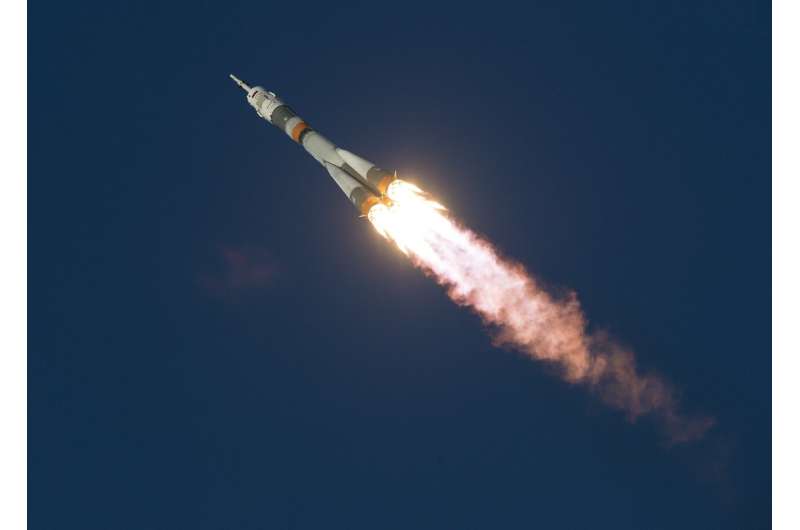This article has been reviewed according to Science X's editorial process and policies. Editors have highlighted the following attributes while ensuring the content's credibility:
fact-checked
peer-reviewed publication
trusted source
proofread
Ethics rules needed for human research on commercial spaceflights, panel says

New guidelines are needed to assure that research on human subjects performed on commercial spaceflights is conducted ethically, a panel of experts say in a commentary appearing in the September 28 issue of the journal Science. Their paper is titled "Ethically cleared to launch?"
Private companies are expected to fly thousands of people into space in the coming decades. Those aboard will include workers and passengers who will have the opportunity to participate in research studies. Such research is not only essential to assure the safety of future space travelers but often also addresses critical issues of human health in general.
Buț current ethical rules used to govern research on human subjects do not directly address the unique circumstances of research aboard commercial spaceflights, according to a panel convened by Center for Medical Ethics and Health Policy, Baylor College of Medicine, Houston.
"There has been a long tradition of astronauts from NASA and other national space agencies of volunteering for research, and the agencies have established tradition on how this research is done," said Dr. Michael A. Williams, professor of neurology and neurological surgery at the University of Washington School of Medicine in Seattle and one of the paper's co-authors.
"But how such research is going to be done aboard commercial flights, where incentives might be different, hasn't really been explored."
The panel calls for formulating guidelines based on four anchoring principles. The first of these is social responsibility. Commercial spaceflight is possible because of a substantial public investment, they argue, so research conducted on commercial spaceflights should benefit society at large.
Second, research conducted on commercial spaceflights should aim for scientific excellence.
"Poorly designed, duplicative, and low- priority studies beget poor-quality data. They cloud the evidence base, endanger participants, and waste resources," they write.
Third, research aboard commercial spaceflights should adhere to the principle of "proportionality," which holds the risk of research should be minimized "to the extent possible, and proportionately balanced in relation to the anticipated benefits of the individual commercial space flight participants and to society."
And, finally, the guidelines should promote the principle of "global stewardship" that assures that the "benefits of human space exploration be enjoyed by all."
The authors acknowledge that their guidelines emphasis on importance of social responsibility differs from other ethical guidelines that give primacy to the research subjects' autonomy in deciding whether to participate in a study, but they argue so few individuals are selected for spaceflight that participation should be encouraged.
"All prospective commercial space flight participants should be fully informed about the social value of any proposed research protocols and be encouraged to participate," they conclude.
"Incentivizing participation may be justified, so long as the incentive is calibrated with the risks and does not create undue inducement. Commercial companies may give preference to those commercial space flight participants willing to participate in research, but further ethical attention is needed to determine whether commercial space flight participants should remain flight eligible even if they decline research participation."
NASA's practices may serve as a model, Williams said. "At NASA, for any given mission an individual might be eligible to participate in as many and 40 to 50 studies, but they get to pick and choose the ones they want to participate in. That respects the principle of autonomy."
The lead author on the Science paper is Vasiliki Rahimzadeh and the senior and corresponding author is Amy L. McGuire, both of the The Center for Medical Ethics and Health Policy at Baylor.
More information: Vasiliki Rahimzadeh et al, Ethically cleared to launch?, Science (2023). DOI: 10.1126/science.adh9028. www.science.org/doi/10.1126/science.adh9028
Journal information: Science
Provided by University of Washington School of Medicine





















